
What is a home equity line of credit (HELOC) and what can it be used for?

Multiple accounts can make it easier to follow a monthly budget

Housing market trends and relocation impact

An investor’s guide to marketplace lending

What is a CLO?

Beyond Mars, AeroVironment’s earthly expansion fueled by U.S. Bank

ABL mythbusters: The truth about asset-based lending

Collateral options for ABL: What’s eligible, what’s not?

Can ABL options fuel your business — and keep it running?

Maximizing your infrastructure finance project with a full suite trustee and agent

Evaluating interest rate risk creating risk management strategy

Tech lifecycle refresh: A tale of two philosophies

Changes in credit reporting and what it means for homebuyers

High-cost housing and down payment options in relocation

4 benefits of independent loan agents

At your service: outsourcing loan agency work

Middle-market direct lending: Obstacles and opportunities

Crypto + Relo: Mobility industry impacts

For today's relocating home buyers, time and money are everything

Streamline operations with all-in-one small business financial support

How to fund your business without using 401(k) savings

How I did it: Turned my side hustle into a full-time job

Costs to consider when starting a business

How to get started creating your business plan

How to establish your business credit score

Tips for realtors to help clients get their homeownership goals back on track

How jumbo loans can help home buyers and your builder business

When to consider switching banks for your business

5 tips to help you land a small business loan

Checklist: 10 questions to ask your home inspector

Closing on a house checklist for buyers

Checklist: financial recovery after a natural disaster

Student checklist: Preparing for college

The A to Z’s of college loan terms

Co-signing 101: Applying for a loan with co-borrower

Practical money skills and financial tips for college students

How I did it: Paid off student loans

Recognize. React. Report. Caregivers can help protect against financial exploitation

Is online banking safe?

Pros and cons of a personal line credit

3 tips for saving money when moving to a new home

5 ways to maximize your garage sale profits

Is raising backyard chickens a good idea financially?

How I did it: Learned to budget as a single mom

Adulting 101: How to make a budget plan

Personal loans first-timer's guide: 7 questions to ask

You can take these 18 budgeting tips straight to the bank

Save time and money with automatic bill pay

Common unexpected expenses and three ways to pay for them

Which is better: Combining bank accounts before marriage — or after?

Do you and your fiancé have compatible financial goals?

Personal finance for teens can empower your child

Is it time to get a shared bank account with your partner?

It's possible: 7 tips for breaking the spending cycle

How to save for a wedding

Here’s how to create a budget for yourself

Don’t underestimate the importance of balancing your checking account

9 simple ways to save

7 steps to prepare for the high cost of child care

What you need to know about renting

Your financial aid guide: What are your options?

Is a home equity loan for college the right choice for your student

Parent checklist: Preparing for college

How to apply for federal student aid through the FAFSA

What to consider before taking out a student loan

Are you ready to restart your federal student loan payments?

Everything you need to know about consolidating debts

How to use debt to build wealth

What’s a subordination agreement, and why does it matter?

Understanding the true cost of borrowing: What is amortization, and why does it matter?

Know your debt-to-income ratio

Your quick guide to loans and obtaining credit

Checklist: 10 things to look for when touring a home

Dear Money Mentor: What is cash-out refinancing and is it right for you?

Overcoming high interest rates: Getting your homeownership goals back on track

Is it cheaper to build or buy a house

For today's homebuyers, time and money are everything

Crypto + Homebuying: Impacts on the real estate market

Should you buy a house that’s still under construction?

How I did it: Bought my dream home using equity

Buying a home Q&A: What made three homeowners fall in love with their new home

House Hacks: How buying an investment property worked as my first home

Managing the impacts of appraisal gaps in a hot housing market

How I did it: Built living spaces to support my family

Spring cleaning checklist for your home: 5 budget-boosting tasks

Bringing economic opportunity to underserved communities one home at a time

Community activist achieves dream of homeownership

Saving for a down payment: Where should I keep my money?

Your guide to breaking the rental cycle

Checklist: 6 to-dos for after a move

What are conforming loan limits and why are they increasing

Military homeownership: Your guide to resources, financing and more
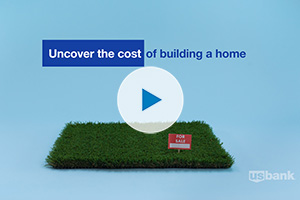
Uncover the cost: Building a home

How I did it: Bought a home without a 20 percent down payment

The lowdown on 6 myths about buying a home

Home buying myths: Realities of owning a home

4 ways to free up your budget (and your life) with a smaller home

Get more home for your money with these tips

Money Moments: Tips for selling your home

Money Moments: How to finance a home addition

How I did it: My house remodel

Are professional movers worth the cost?

First-time homebuyer’s guide to getting a mortgage

Dear Money Mentor: When should I refinance a mortgage?

Beyond the mortgage: Other costs for homeowners

Building a dream home that fits your life

10 ways to increase your home’s curb appeal

10 questions to ask when hiring a contractor

5 things to avoid that can devalue your home

How you can take advantage of low mortgage rates

What is an escrow account? Do I have one?

Is it the right time to refinance your mortgage?

What to know when buying a home with your significant other

These small home improvement projects offer big returns on investment

Should you get a home equity loan or a home equity line of credit?

Mortgage basics: Prequalification or pre-approval – What do I need?

Mortgage basics: How much house can you afford?
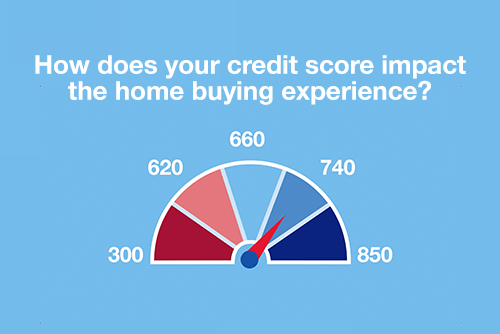
Mortgage basics: How does your credit score impact the homebuying experience?
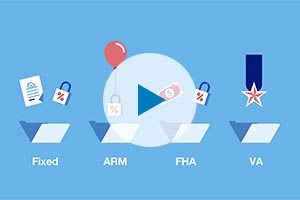
Mortgage basics: Finding the right home loan for you

Mortgage basics: Buying or renting – What’s right for you?
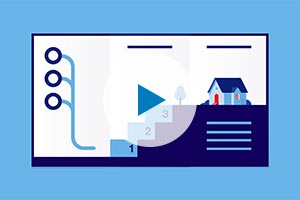
Mortgage basics: 3 key steps in the homebuying process

Is a home equity line of credit (HELOC) right for you?
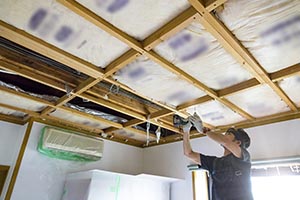
How to use your home equity to finance home improvements

How do I prequalify for a mortgage?

Home equity: Small ways to improve the value of your home

Can you take advantage of the dead equity in your home?

8 steps to take before you buy a home

6 questions to ask before buying a new home

4 questions to ask before you buy an investment property

10 uses for a home equity loan

Test your loan savvy

Take the stress out of buying your teen a car

Questions to ask before buying a car

What you should know about buying a car

How to choose the best car loan for you

